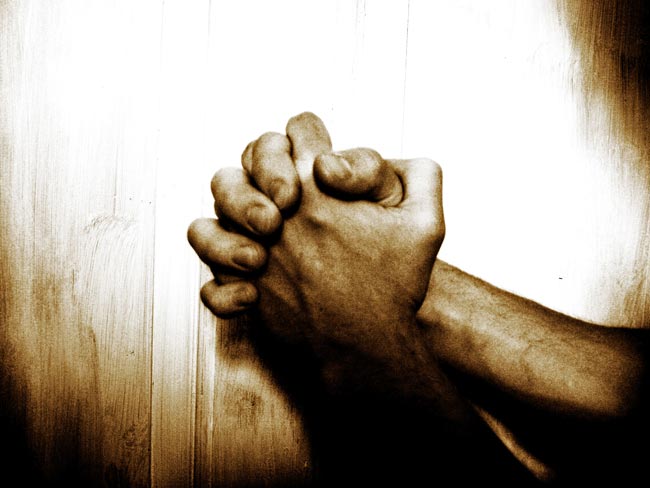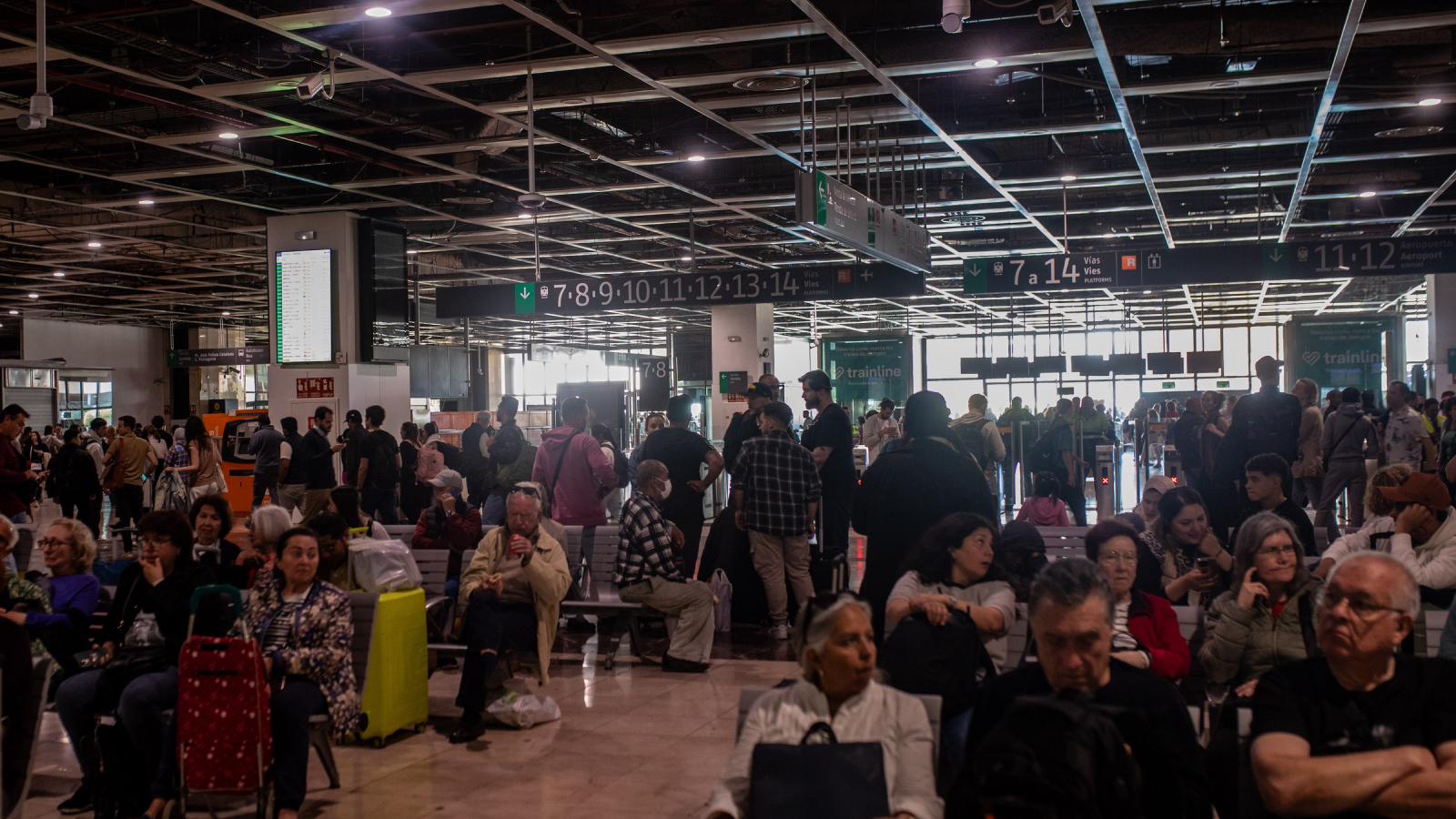Prayer Relieves Mind in Many Ways, Study Finds

Getting on your knees and looking to the heavens may really bring comfort during tough times, new research finds.
This will come as no surprise to many Americans, as 75 percent say they pray on a weekly basis in order to manage hard situations, including illness, and emotions such as sadness and anger, according to the study researcher citing Pew Research Center data. And most Americans also think God is involved in their everyday lives and concerned with their personal well-being.
The new study aimed to find out how prayer leads to mental relief. Results suggested prayer can serve as a distraction and even as sort of a punching bag.
Always available
Lead researcher Shane Sharp, a graduate student studying sociology at the University of Wisconsin-Madison, conducted in-depth interviews with 62 victims of violent relationships with intimate partners. Participants ranged in age from 19 to 72 (averaging 41) and represented a wide swath of the United States in geographic, educational and racial terms, with largely Christian backgrounds.
Results showed that in general that God or another figure from religion acted as a support system for the participants. The figure had certain perceived characteristics, such as being loving, powerful and caring, that influenced why participants sought him or her out. But unlike a flesh-and-blood shoulder to cry on or an abusive partner to rail at, God was available whenever and wherever the participant reached out, Sharp said.
"If they vented their anger to that abusive partner, the result was likely to be more violence," Sharp told LiveScience. "But they could be angry at God while praying, without fear of reprisal."
Sign up for the Live Science daily newsletter now
Get the world’s most fascinating discoveries delivered straight to your inbox.
For those who are not religious, Sharp said, the findings of the study may not apply unless they look to another "virtual" friend, such as a celebrity, in times of crises. [Thinking of God Calms Believers, Stresses Atheists]
Victims' stories
One participant, Monica, a white 25-year-old, said she used prayer to manage her anger over being abused by a loved one. It's "kinda like getting something off your chest, you know. I mean, you’re kinda talking about it with somebody, you know. I mean, it’s just a way to kinda voice your opinion, you know, about something, or, you know, let the Lord know, you know, how you would like something," she was quoted as saying.
Sharp added that prayer seemed to help self-image. "During prayer, victims came to see themselves as they believed God saw them. Since these perceptions were mostly positive, it helped raise their senses of self-worth that counteracted their abusers' hurtful words," Sharp said.
Marianne, a white Southern Baptist in her early 50s who had been married to an abusive man for nearly 20 years, sighed as she said: "I guess the number one thing for me would be the realization that there’s, there was, the God out there the whole time where I'm out thinking, well, 'This is my life so screwed up. I need to get drunk. No, I need to take drugs. No, I need to kill myself.' ... And just to, to be able to just sit down and think that God wanted to communicate with me and that I'm not a scumbag in front of his eyes no matter what. Wow, how cool is that?"
Prayer also served as a handy distraction for some, Sharp found. Folding one's hands and focusing on this conversation provided a reprieve from the anxiety of an abusive relationship.
Yet the consequences of prayer weren't always positive. "For some, through prayer they told me they learned to forgive their abusive partners, to let go of their anger and resentment," Sharp said. "But that's a double-edged sword. It's good for those who are out of that violent relationship to let go of it to a certain extent. But if they're still in their violent relationship, it may postpone their decision to leave, and that can be bad."
Religion is complicated
That double-edged sword highlights the complexity of religion and its effects. "Religion is often pointed to as a mostly positive or mostly negative thing. It's way more complicated than that," said Sharp, whose results are detailed in the current issue of the journal Social Psychology Quarterly.
Other research out this month shows that religious people are happier because of the social networks they build by attending religious services. Past research has shown that teen birth rates are higher in highly religious states, and another study suggested kids with religious parents are better behaved than others.
The findings have practical implications for mental health experts and researchers who study well-being. Sharp said future research should consider prayer as an interaction instead of a one-sided act.
In addition, "psychotherapists and other mental health professionals can try to develop similar, non-prayer ways to accomplish these tasks," Sharp told LiveScience. "Since one way that prayer helps is by providing another who will provide positive, self-esteem-boosting feedback, mental health professionals can develop therapy programs that will be sure to include positive, self-esteem-boosting feedback that can counteract negative feedback in patients' lives."
- 7 Thoughts That Are Bad For You
- Manuscripts Reveal Legend of Jesus' Great-Grandmother
- Top 10 Mysteries of the Mind
You can follow LiveScience Managing Editor Jeanna Bryner on Twitter @jeannabryner.
Jeanna Bryner is managing editor of Scientific American. Previously she was editor in chief of Live Science and, prior to that, an editor at Scholastic's Science World magazine. Bryner has an English degree from Salisbury University, a master's degree in biogeochemistry and environmental sciences from the University of Maryland and a graduate science journalism degree from New York University. She has worked as a biologist in Florida, where she monitored wetlands and did field surveys for endangered species, including the gorgeous Florida Scrub Jay. She also received an ocean sciences journalism fellowship from the Woods Hole Oceanographic Institution. She is a firm believer that science is for everyone and that just about everything can be viewed through the lens of science.
'Rabbits sometimes make mistakes or grow lazy. That's when the tortoise seizes its chance': Chinese scientists make nuclear power breakthrough using abandoned US research
What is 'induced atmospheric vibration' and did it really cause power outages across Spain and Portugal?
'How could it have been allowed to happen?': The threat of 'superbugs' was known from the first antibiotic, but we've failed to stop it.









